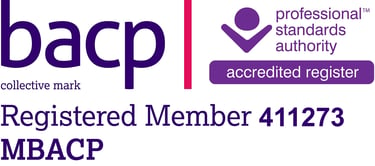Recognising the Signs: Five Indicators That You May Need Counselling
Skyla Counselling
12/25/20242 min read


Understanding Mental Wellbeing
Mental wellbeing is an essential part of our overall health. It impacts how we feel, think, and behave in our daily lives. Many people experience ups and downs in their emotional state, but sometimes these feelings can signal deeper issues. If you are wondering whether you should seek counselling, here are five signs that poor mental wellbeing may be affecting you.
1. Persistent Feelings of Sadness or Anxiety
It’s normal to feel sad or anxious from time to time. However, if these feelings are persistent and affect your daily life, it might be a sign to seek counselling. Continuous sadness or heightened anxiety can cloud your judgment and prevent you from enjoying activities you once loved. Professional guidance can help you explore these feelings and develop effective coping strategies.
2. Changes in Sleep Patterns
Sleep is crucial for maintaining a good mental state. If you find yourself struggling to fall asleep, waking frequently during the night, or sleeping excessively, this could indicate an underlying issue. Counselling can help you understand the triggers of your sleep disturbances and provide you with techniques to restore healthy sleep patterns.
3. Changes in Appetite or Weight
Our emotions significantly impact our eating habits. Whether you are overeating or losing your appetite, noticeable changes in weight can signal stress or anxiety. If you find yourself eating for comfort or completely avoiding food, seeking the help of a counselor can provide support in developing a balanced relationship with food.
4. Withdrawal from Social Activities
Feeling isolated or withdrawing from friends and social events is another significant indicator of poor mental wellbeing. If activities that once brought you joy now seem unappealing, this may be a signal that you need support. Counselling can help you reconnect with others and regain interest in social engagements, which can boost your mental health.
5. Difficulty Concentrating
If you find it challenging to focus on tasks or make decisions, this can be a sign of mental fatigue. Difficulty concentrating can interfere with work, education, and personal responsibilities. A counsellor can work with you to identify the causes of this mental fog and develop practical strategies to enhance your focus and cognitive clarity.
Recognising these signs of poor mental wellbeing is the first step toward seeking help. There is no shame in reaching out for counselling; it is a brave decision that can lead to a more fulfilling life. If you resonate with any of the indicators listed above, consider exploring the option of speaking to a mental health professional. Your mental wellbeing is important, and taking action can bring about positive change.









